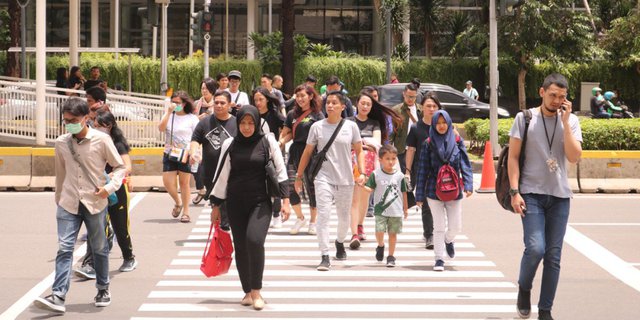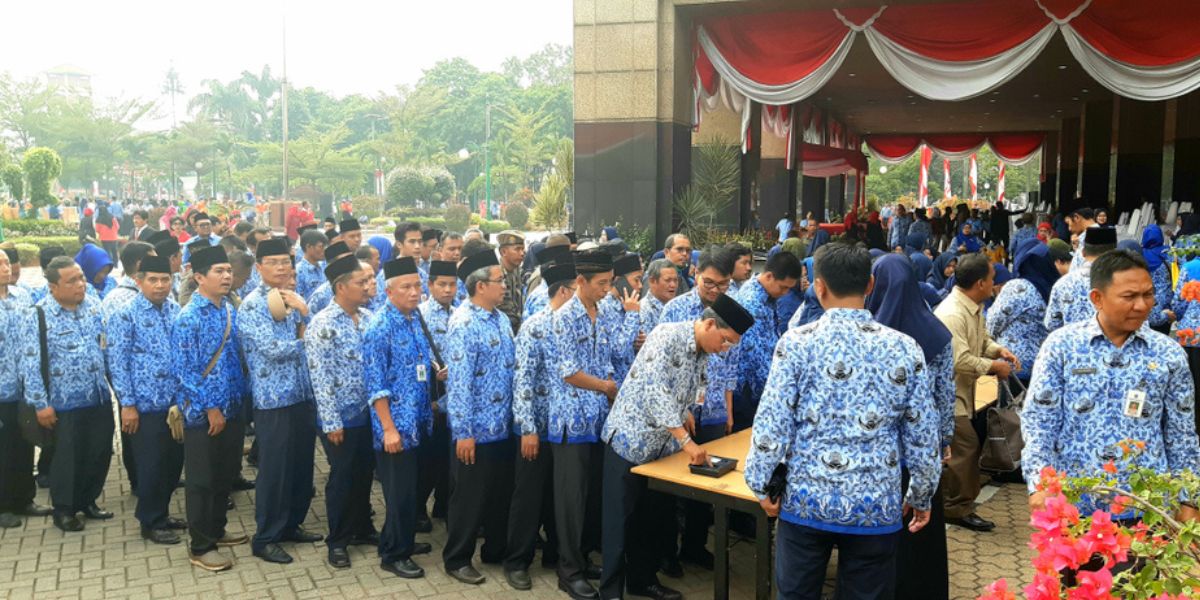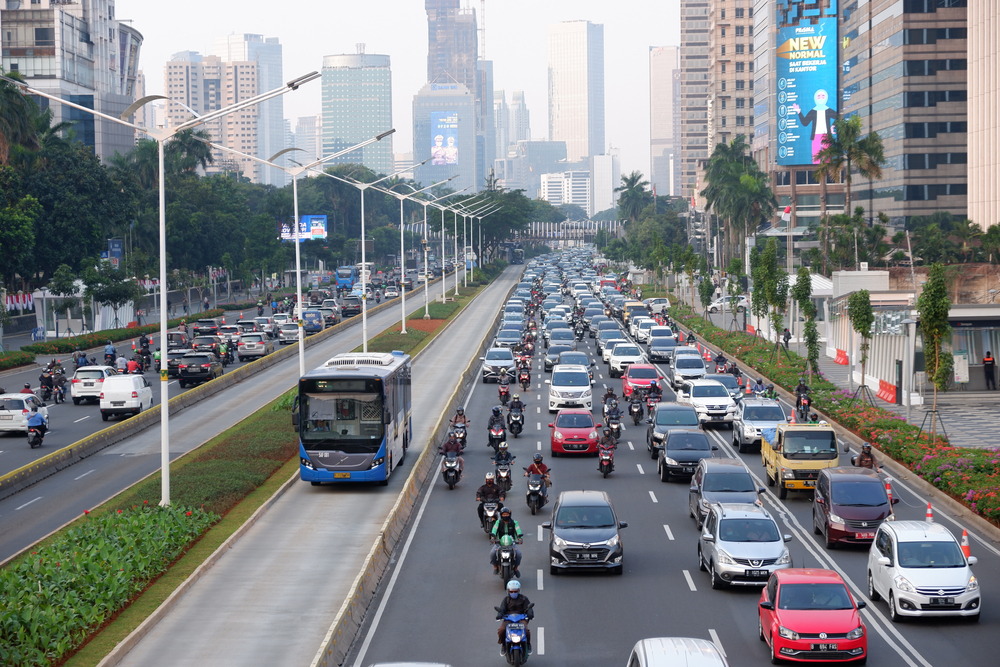The Story of Prophet Isaac, the Righteous Son of Prophet Abraham and Born from a 90-Year-Old Mother
Because of his righteousness, Prophet Isaac also received praise from Prophet Muhammad and Allah SWT.

Dream - The Ministry of Home Affairs urges local governments in Jabodetabek to encourage private companies in their respective areas to implement the hybrid work system, also known as WFH and WFO. This recommendation is issued to control air pollution in Jakarta.
"Local governments in the Jabodetabek area are encouraged to urge private sector employees and businesses to implement WFH and WFO according to the policies of relevant institutions/business actors," said Safrizal ZA, the Director General of Regional Administration Development at the Ministry of Home Affairs, as quoted from the official website setkab, on Thursday, August 24, 2023.
The Minister of Home Affairs, Tito Karnavian, has issued Ministerial Instruction (Inmendagri) Number 2 of 2023 regarding Air Pollution Control in the Jakarta, Bogor, Depok, Tangerang, and Bekasi (Jabodetabek) areas. This instruction contains directives that need to be implemented by regional heads, including the Governor of DKI Jakarta, the Governor of West Java, the Governor of Banten, as well as the regents/mayors of the Jabodetabek area.
This Inmendagri is effective from August 22, 2023, until a later determined time, based on the evaluation of the established policies.

Safrizal ZA explained that Inmendagri 2/2023 is also a follow-up to President Joko Widodo's directive in a limited meeting (ratas) regarding improving air quality in the Jabodetabek area on August 14.
The directives in this Inmendagri include the implementation of hybrid work systems, motor vehicle restrictions, improvement of public transportation services, tightening emission testing, optimization of mask usage, environmental emission control and green solution implementation, as well as control of industrial waste management.
"Regional heads are requested to adjust work system regulations by implementing work from home (WFH) and work from office (WFO) as much as 50 percent for civil servants in the regional apparatus, employees of state-owned enterprises (BUMN), and regional-owned enterprises (BUMD), with exceptions for those who provide direct public services/essential services," he added.
The WFH and WFO arrangement policies are expected to reduce mobility that contributes to air pollution, considering that the majority of the population uses motor vehicles, both cars and motorcycles, for activities such as commuting to the office.
Safrizal reminded that efforts to restrict motor vehicles should be implemented by optimizing the use of mass transportation or public transportation, including the use of non-emission vehicles or electric vehicles. This is because, based on available data, one of the contributing factors to air pollution in Jabodetabek is the transportation and industrial sectors.
"Regional heads are instructed to improve public transportation services by ensuring the capacity of public vehicles, adding routes and pick-up points, addressing disruptions in the busway lanes, and providing incentives or discounts to encourage the public to switch from private vehicles to public transportation," he said.

The Inmendagri also instructs local governments to tighten vehicle emission testing programs, enhance supervision, and conduct socialization of incentives for users of non-emission vehicles or electric vehicles. In addition, local governments also need to socialize incentives for electric vehicles, such as exemption from odd-even policies or priority parking or reduced parking fees.
Safrizal explained that efforts to control environmental emissions and implement green solutions are carried out through the prohibition of open waste burning, pollution control from construction activities, road watering to reduce dust, optimization of tree and plant planting in public spaces and narrow spaces, the use of water curtains/green curtains, as well as weather modification through artificial rain.
"Local governments should control industrial waste management by enhancing supervision, promoting the use of scrubbers in the industrial sector, conducting emission testing, and imposing fines on violators, renewing equipment, and increasing the use of renewable energy in industries," he said.
However, Safrizal stated that efforts to control air pollution in Jabodetabek need to be strengthened by reinforcing the coordination forum of regional leaders (forkopimda). Additionally, the role of the regional police officers (satpol PP) in enforcing local regulations (perda) and regional head regulations (perkada) regarding air pollution control needs to be optimized.
"A collaborative approach within the solidarity of forkopimda is an integral part of the implementation of this Inmendagri in the field. The issue of funding is also important, where local governments that have not allocated funds can propose changes to the regional budget (APBD) with a direct burden on unforeseen expenses (BTT)," he said.
Cobain For You Page (FYP) Yang kamu suka ada di sini,
lihat isinya
Because of his righteousness, Prophet Isaac also received praise from Prophet Muhammad and Allah SWT.
This 37-year-old woman has not been blessed with children after 10 years of marriage with her husband.
Because of the speed, the boat swerved at the finish line.
These are a series of buildings and public facilities with designs and constructions that make people fail to understand.
Through its official Instagram account @welovehonda_id, they clarify that the yellow color on the eSAF body is not rust but silica.
Meanwhile, the female lion can only resist in the woman's arms.
Not honking, the bus driver drives very carefully behind the visually impaired broom seller.
AMSI has more than 450 cyber media members in 27 provinces in Indonesia
He steps onto the stage and gives a red envelope as a gift to the couple.
For BSI, Saudi Arabia is a potential market for the pilgrimage and umrah business.
Pay for moving service, homeowners receive convenience.
All OCBC NISP customers can access gold savings through the ONe Mobile application.